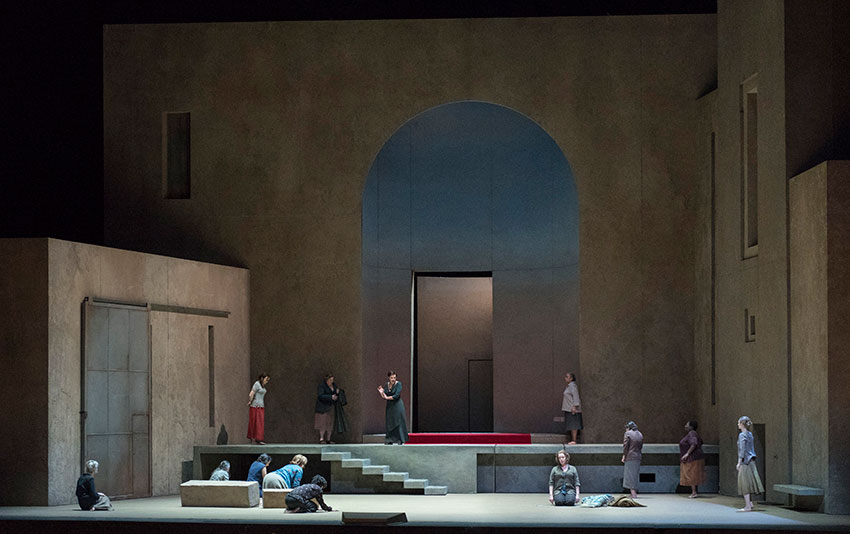Electra
In Greek mythology, Electra was a female Oedipus. She plotted the murder of her mother as revenge for the murder of her father.
In psychology, the “Electra complex” refers to a girl’s competition with her mother for the affection of her father.
Both Sophocles and Euripides, two of the three ancient Greek playwrights whose work we know of, wrote Electra tragedies.
The Electra Story
Electra was the daughter of legendary King Agamemnon and Queen Clytemnestra. King Agamemnon was the commander of Greek forces in the legendary Trojan War. When he returned home from the ten-year war with a Trojan princess Cassandra, Queen Clytemnestra killed or had them both killed.
Later Electra’s brother Orestes was told by the Oracle of Delphi to avenge his father’s death. Electra helped with the plotting, and in some versions, helped with the murder of her mother and her mother’s new lover.
Elektra, the Opera
The Electra legend with its circular infidelities, vengeful plots, and tragic murders is a natural opera.
Elektra is a one-act opera by German romantic and modern composer Richard Strauss (1864 – 1949). It is a very modernist Strauss opera.
The German libretto was written by Hugo von Hofmannsthal. It was based on Sophocle’s Electra. This was the beginning of a five-opera partnership.
Elektra premiered at the Dresden State Opera in 1909. It premiered at The Met in 1932.
Elektra Setting
The opera is traditionally set in Mycenae, Greece years after the end of the Trojan War.
Elektra Roles
- Elektra is King Agamemnon’s daughter
- Chrysothemis is Elektra’s sister
- Klytämnestra is Elektra’s mother
- Aegisth is Klytämnestra’s lover
- Orest is Elektra’s brother and King Agamemnon’s son
Metropolitan Opera’s Elektra 2017 – 2018
The Metropolitan Opera performs Patrice Chéreau’s 2017 production six times in March 2018. Chéreau’s production is set in an unidentified contemporary place and time.
Elektra Cast
Yannick Nézet-Séguin (Montreal, Canada) conducts. Paul Nadler (Chicago, Illinois) substitutes on March 23.
Soprano Christine Goerke (Medford, New York) is Elektra.
Soprano Elza van den Heever (Johannesburg, South Africa) is Chrysothemis. Allison Oakes (Stoke-on-Trent, England) substitutes on March 23.
Mezzo-soprano Michaela Schuster (Fürth, Germany) is Klytämnestra.
Tenor Jay Hunter Morris (Paris, Texas) is Aegisth.
Bass Mikhail Petrenko (St. Petersburg, Russia) is Orest. Dwayne Croft (Cooperstown, New York) substitutes on March 9.
Elektra Performances
Thursday, March 1 at 8 pm
Monday, March 5 at 7:30 pm
Friday, March 9 at 8 pm
Monday, March 12 at 7:30 pm
Saturday, March 17 at 1 pm
Friday, March 23 at 8 pm
Elektra Tickets

[content_block slug=metropolitan-opera-tickets suppress_content_filters=”yes”]
